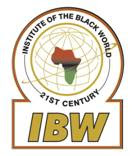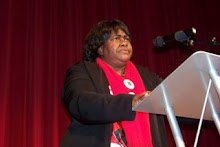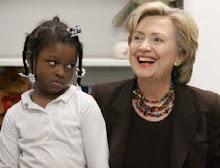Democrats Could Swamp McCain With $500 Million in Final Two Months
By RICK KLEIN
June 19, 2008 —
Sen. Barack Obama's decision to forgo public financing for his presidential campaign clears the way for him to outspend Sen. John McCain by 3-to-1 or substantially more in the general election, a financial edge that dramatically rewrites the playbooks for both candidates.
With the possibility of spending perhaps $500 million just in the final two months of the campaign, Obama will be the first major-party candidate to enjoy a spending edge in the general election in more than 30 years. The comparison with the consistently cash-strapped McCain campaign could hardly be more stark.
"It'll be like George Steinbrenner's Yankees in the '90s an All-Star at every position against the '90s Kansas City Royals, barely able to meet their payroll," said Chris Lehane, a Democratic consultant who worked for Al Gore in 2000 and John Kerry in 2004.
Though Obama risks a short-term political backlash by seeming to go back on his word, Democratic and Republican strategists say most campaigns would take such a hit in exchange for the unprecedented cash advantage he'll derive.
McCain said Thursday he will accept public financing, meaning he'll be limited to spending only $84.1 million in the critical window between the Republican National Convention and Election Day. He'll be forced to lean more heavily on the Republican National Committee and outside groups that he cannot legally coordinate spending decisions with.
In that same time period, Obama will continue to be free to raise and spend unlimited amounts with advertising specialists and party insiders projecting that he will bring in hundreds of millions of dollars, utilizing and expanding on the most efficient fundraising operation in American political history.
"He's going to be able to raise almost unimaginable amount of money," said Tad Devine, a Democratic strategist who was a top adviser in the Gore and Kerry campaigns. "This is an incredible advantage for him and his campaign. He'll be able to dictate the terms of this election."
"This is bigger than Obama being ahead in the polls," Devine continued. "This means he can be the aggressor."
Some party strategists say Obama could use his immense cash advantage to run a national ad campaign akin to marketing drives run by companies like McDonald's and Nike, while simultaneously engaging in targeted, state-level organizing that could leave McCain on the defensive in states that have rarely been competitive in years past.
On Thursday, Obama released his first ad since wrapping up the Democratic nomination, and it hints at the potential scope of ad buys to come. His message will run in 18 states, including perennial Republican strongholds Alaska, Montana, North Carolina, and North Dakota, as well as classic swing states Florida, Michigan, Ohio and Pennsylvania.
"If the ad buy looks like this in October, this election's over," said Ken Goldstein, director of the Wisconsin Advertising Project at the University of Wisconsin-Madison. "He's competing in red states, and he doesn't even feel he needs to advertise in blue states."
Obama's decision could also hasten the end of the post-Watergate campaign-financing system that has leveled presidential playing fields for more than three decades. Both major-party candidates have opted into the public campaign-finance system since it was put into place in time for the 1976 elections.
The system which relies on money from taxpayer check-offs selected by fewer than 10 percent of tax filers has been widely criticized in recent years, and both McCain and Obama have expressed interest in making revisions.
"When at least one candidate isn't taking money at all, and 90 percent of taxpayers aren't paying into the system, you know something's wrong with the system," said Massie Ritsch, a spokesman for the Center for Responsive Politics, which tracks political spending.
Bob Bauer, the Obama campaign's general counsel, told reporters in Washington Thursday that Obama would push to update the system in time for the 2012 elections.
"That architecture has to be revamped," Bauer said. "There are & measures to do just that for both the primary and the general that I think will restore its viability as a vehicle make it attractive and bring candidates back to public funding beginning in the 2012 presidential election."
Obama has already shattered monthly campaign fund-raising records, and is on pace to obliterate all previous markers. He has raised more than $250 million just through the end of April for his primary campaign.
With nearly half of his money coming from donors who've given less than $200, he can tap most of his 1.5 million donors repeatedly before they reach the maximum of $2,300 each. That's not even counting the pool of Hillary Clinton donors available to him now that she has left the race.
Obama's spending could reach a saturation point: Even corporate giants know there's such a thing as too much messaging to throw at consumers. Both candidates will get wide press coverage throughout the campaign, and such "free media" can be just as important in an election's outcome.
The McCain campaign is hoping Obama's decision will tarnish his image as a reformer. Obama committed publicly to pursuing an agreement with McCain that would involve both of them taking public dollars, only to abandon it less than two weeks after he became the presumptive Democratic nominee, with Clinton's exit.
"This election is about a lot of things but it's also about trust. It's also about whether you can take people's word," McCain said Thursday in Iowa.
The candidates' spending doesn't tell the whole story, since other organizations chip in. Republicans will be able to compete financially through the auspices of the RNC which has done a far better job raising money than its Democratic counterpart and outside groups, which played a major role in 2004 and are already spending this year.
But, Goldstein said, a critical difference will be that the Obama campaign will have full control of its resources, while the McCain campaign will have to lean on outside groups with which it cannot, by law, discuss strategy or messaging.
"It not only gives him tons of money, more importantly, it gives him tons of control," Goldstein said. "Obama can freeze the race. It can put so much money up there that it spends McCain into oblivion."
Devine said that Kerry's decision to accept public funds in 2004 was "one of the biggest mistakes we made" in the campaign. Kerry had to make his money last five weeks longer than President Bush did, because of the timing of the two conventions, and Kerry was not advertising on television at all when the Swift boat attacks began in August.
With Obama already up in the polls and the likelihood of a big Election Day for Democrats nationwide the financial edge could be the last piece Obama needs, Lehane said.
"The resource advantage on top of the current trends is a potential game-changer," he said.
"This is a completely different paradigm from the way presidential campaigns have been run over the last 20 or 25 years."
ABC's David Chalian and Bret Hovell contributed to this report.
Copyright © 2008 ABC News Internet Ventures
Friday, June 20, 2008
Subscribe to:
Post Comments (Atom)













No comments:
Post a Comment